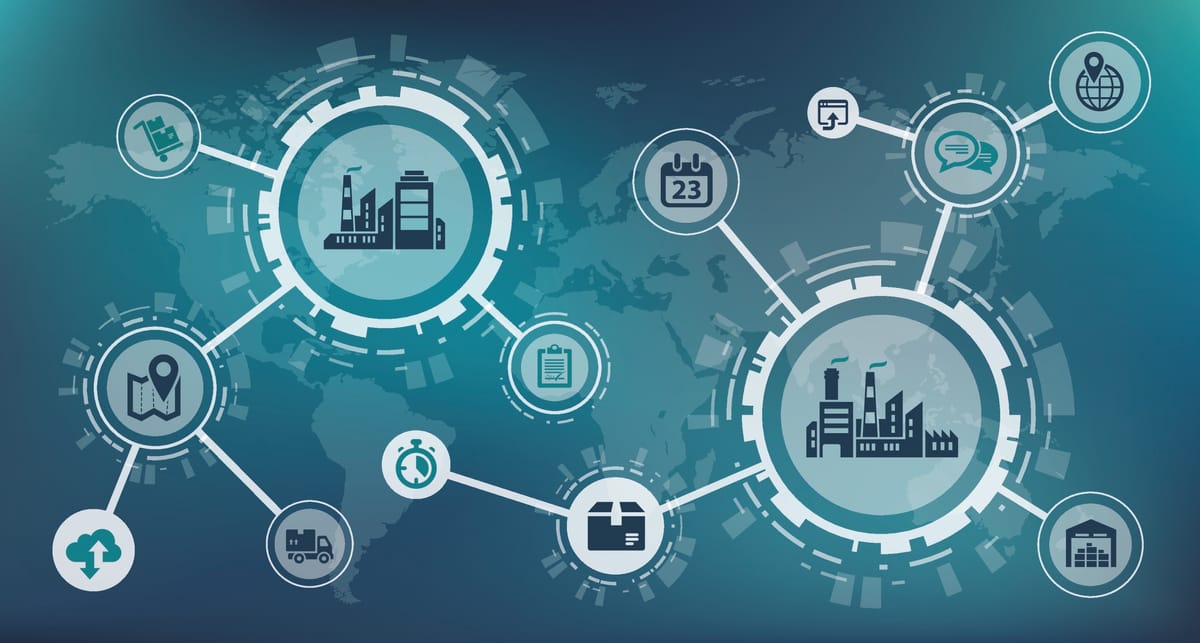Supply chain technology disruptions: Automation and resilience innovations

Investments in supply chain technology solutions are accelerating rapidly as firms around the world aim to address fragility exposed by recent shocks amid mounting pressures for greater efficiency, visibility, and resilience. Our proprietary analysis shows that global warehouse automation deployments grew 15% year-over-year in 2022, while the adoption of order-tracking tools and risk mitigation technologies saw similar double-digit upticks. Finding creative ways to drive logistics efficiencies by prioritising smart technology applications while still effectively navigating the complex on-the-ground challenges of emerging market supply chains remains a key imperative.
Transforming the fragmented logistics sector
The wider logistics and supply chain ecosystem, particularly in high-growth emerging economies across regions like Southeast Asia, the Middle East, Latin America, and Africa, is undergoing a significant transformation, buoyed by the swift pace of technological innovation and disruption, yet still grappling with entrenched infrastructure bottlenecks and pain points ranging from fragmented markets, inconsistent regulations, inadequate transport links, and suboptimal warehousing networks that continue to constrain progress and drive up operational costs.
Smaller, highly fragmented logistics players have traditionally dominated transportation and delivery routes in emerging markets, where informality and mom-and-pop operators still reign. However, a new breed of tech-enabled startups is rapidly emerging, innovating around core areas from trade financing, to inventory and shipment tracking, warehousing, fleet mobilization, and last-mile distribution. These firms aim to plug pervasive gaps in developing world supply chains with agile solutions while vastly improving efficiency, reliability and transparency. However, the key to accelerating this transformation lies in significantly increasing infrastructure funding, upgrading transport networks, implementing supportive policies, and promoting widespread adoption of emerging digital platforms and automation technologies across both established companies and informal entities.
Larger retailers and consumer goods manufacturers are also taking steps to actively modernize their downstream supply chains and distribution models in order to more effectively and profitably distribute goods to fragmented emerging markets, particularly in rural areas. In African countries, informal retail still accounts for over 90% of fast moving consumer goods value. This lack of visibility into downstream channels and retail endpoints handicaps the ability of suppliers and distributors to tweak sales strategies and expand reach. The emergence of new-generation logistics players coupled with enhanced digitisation initiatives is crucial to overcoming these information blindspots.
Meanwhile, third-party logistics in emerging regions is also transforming, with smaller, legacy operators increasingly being replaced by larger, more modern, tech-enabled third-party logistics providers capable of delivering economies of scale. Though the pace of change remains gradual, rapid improvements in both hard and soft business infrastructure, coupled with trade framework modernisation, will help unlock exponentially greater levels of supply chain efficiency and visibility.
Carriers outpace shippers in tech deployment
Our proprietary market analysis indicates that logistics carriers and third-party providers across emerging markets are noticeably outpacing shippers and consumer brands when deploying the latest automation and supply chain optimisation technologies. Larger multinational shippers and retailers often struggle to flexibly compete with the hyper-fragmented network of small, informal shops and distributors comprising over 90% of fast moving consumer goods volumes in these markets. As a result, logistics carriers are displaying greater urgency and willingness to test and adopt technologies aimed at overcoming nagging delivery delays, visibility gaps, bottlenecks and pain points within complex last mile distribution models.
Major logistics carriers are already actively piloting and implementing an array of innovative technologies including blockchain-enabled track and trace platforms, internet-of-things sensors, crowdsourced delivery, electrified fleets, and warehouse robotics. Moreover, emerging market players following vertically integrated models are increasingly setting the pace on supply chain innovation and modernization. However, shippers still tend to lag considerably on advanced technology adoption, often implementing solutions in a piecemeal fashion limited to point problems. Turning the tide will require much greater levels of collaboration across the public and private sectors to jointly smooth infrastructure impediments and modernise regulations in ways that unleash innovation, drive standardisation and fuel economies of scale.
The path forward
Our insight is that every participant across emerging market supply chains and logistics ecosystems has an integral role in jointly driving transformation through enhanced collaboration and smart adoption of innovation. Harnessing the right technologies and forging the right partnerships can help reshape global logistics flows and supply chains for the future by enhancing transparency, resilience, sustainability and human welfare.
The opportunity exists to truly reinvent supply chains across key regions by making them dramatically more efficient, agile, and continuously optimised. But this requires both vision and pragmatism. While innovation constantly supplies new tools and possibilities, understanding on-the-ground realities is indispensable to developing solutions that work at scale for all stakeholders. With the right data, cooperation and implementation, a new era of supply chain excellence across emerging economies can emerge.




